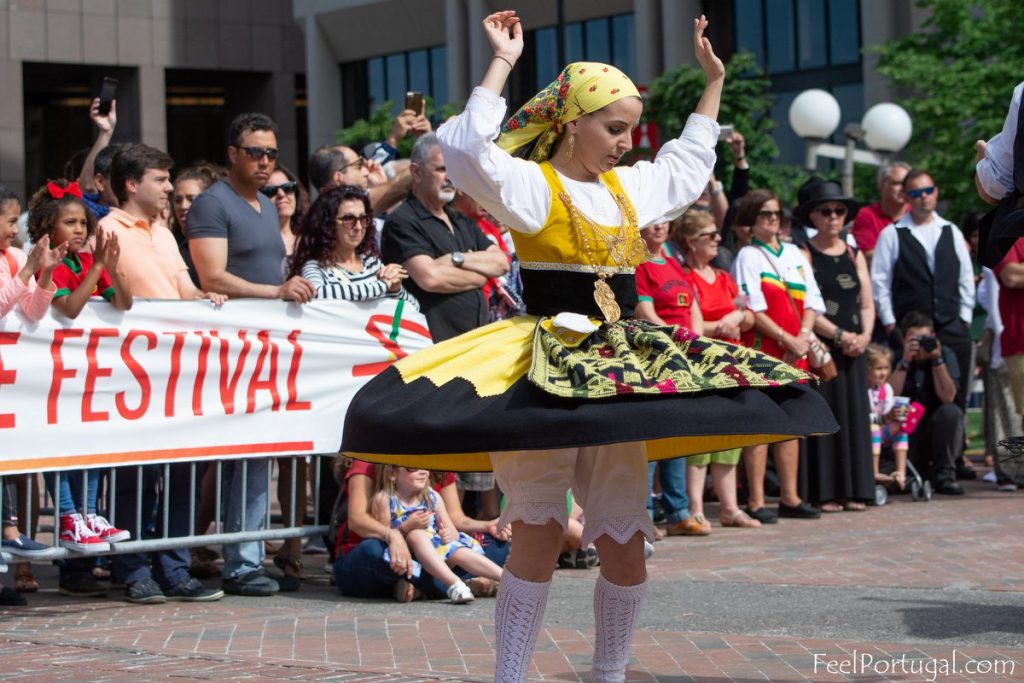Traditional Portuguese folk music has been defined as music transmitted by mouth, as the music of the lower classes, and as music with unknown composers. Another way it has been defined is music that has been transmitted and evolved by a process of oral transmission or performed by custom over a long period of time. Concertinas (similar to accordions) are the most commonly used musical instruments in Portuguese folklore.

Fado is another form of traditional Portuguese music. Fado, an old form of urban folk music in Portugal, was born in the streets and back alleys of Lisbon, Portugal in the early 1800s. Fado music expresses the Portuguese identity through lyricism, composition, performance, and community.
For those who want to learn how to sing and dance Portuguese folklore, the traditional songs and dances of Portugal. You may want to contact one of the many Portuguese folklore groups throughout the US. They are known as ranchos folclóricos.
Many of the Portuguese clubs and organizations in the US have ranchos folclóricos where you can learn to sing or dance Portuguese folklore for free.


